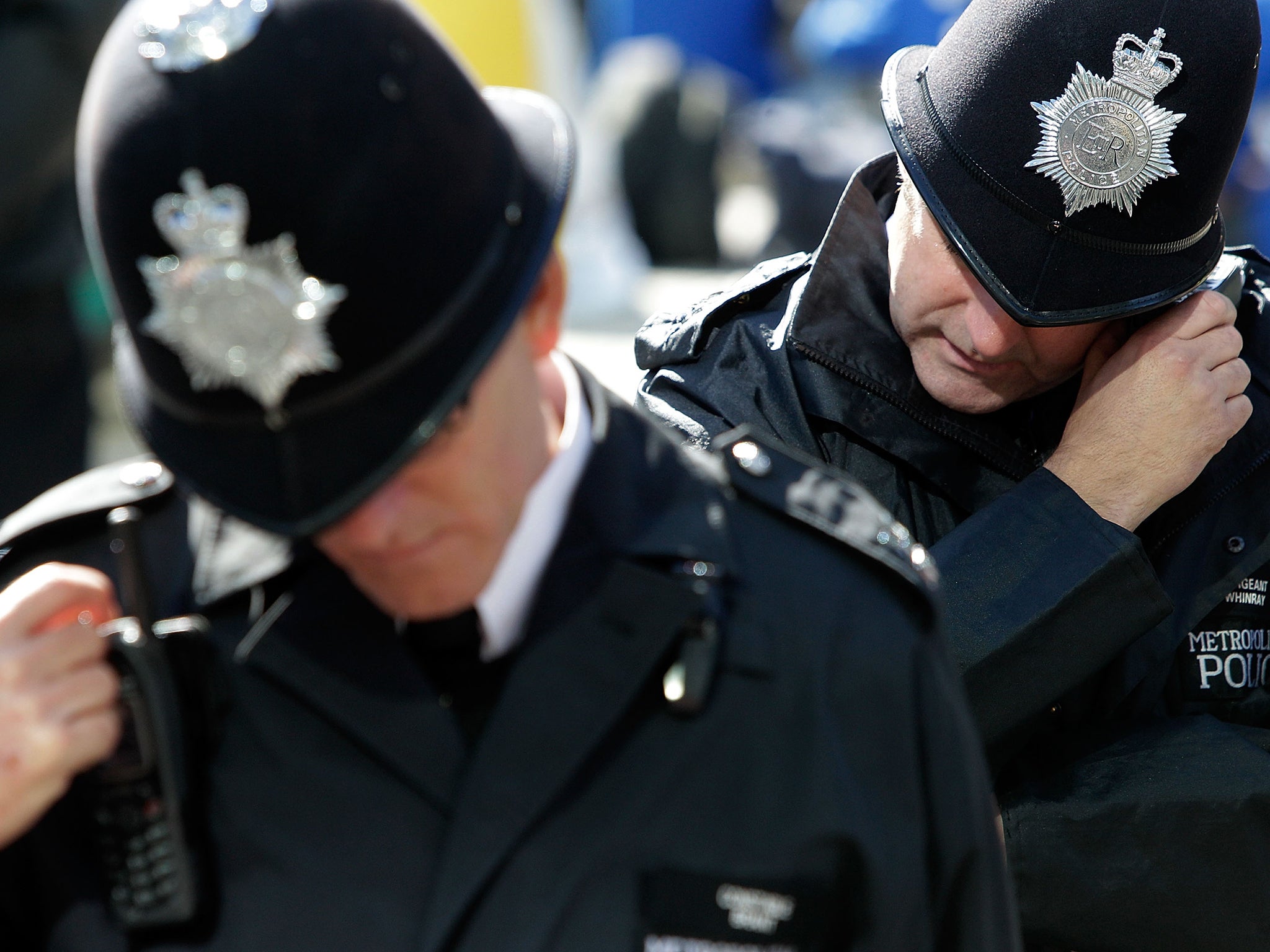3 charts that show police forces still have a race problem
Members of the black community also over-represented in Britain's prison system compared to the general population

Black people are disproportionately more likely than white people to be Tasered or face stop-and-search checks by police, figures suggest.
Statistics also reveal members of the black community are over-represented in Britain's prison system when compared to the general population.
The figures follow a warning by Home Secretary Theresa May that she is prepared to legislate to curb the "excessive and disproportionate" use of the powers if the police record does not improve.
Black people are disproportionately more likely to be Tasered
In more than 12 per cent of cases Tasers were used against black people across England and Wales, where they make up 3 per cent of the population, according to the 2011 census.
Overall, white people make up 87 per cent of the population.
Tasers were used by police 38,135 times, though in 80 per cent of incidents they were not discharged.
The ethnicity of the person against whom the Taser was used was recorded in 36,038 cases.
In 4,582 of those cases Tasers were used against a black person of African-Caribbean origin or of mixed white and African-Caribbean origin, representing 12.7 per cent.
The figures were compiled by the Home Office from all 43 police forces in England and Wales, following a BBC Freedom of Information request.
Black people are disproportionately more likely to be subject to stop and search
Black and Asian people are more likely than white people to subject to stop-and-search checks by police.
Despite representing 3 per cent of the population, black people represent 12 per cent of those stopped and searched.
While representing 7 per cent of the general population, Asian people make up 8 per cent of those subject to stop-and-search.
Again, this can be compared to white people, who make up 87 per cent of the population but 71 per cent of the stop-and-search statistics.
There are two key powers for stop and search in England and Wales, and the majority are conducted under Section 1 of the Police and Criminal Evidence Act (PACE).
Black people are disproportionately over-represented in prison
Black people represented 13 per cent of the prison population in 2012.
Matilda MacAtram, director of Black Mental Health UK, said: "While deeply disturbing, the injustice that underlies these figures is sadly unsurprising given the way Britain's black communities are over policed but under protected.
"What is also of grave concern is hidden use of Taser deployment against people detained under the Mental Health Act on locked wards, which is a practice that goes unmonitored and the victims of which have no redress.
"Such human rights abuses should not be happening."
Responding to questions about Taser use, Deputy Commissioner Neil Basu said: “Every use of Taser is reported and scrutinised by a supervisor and officers are personally accountable to the law each time their Taser is drawn.
"In 80 per cent of Taser uses in the UK, the mere presence of the device is enough to resolve the violent or potentially violent situation without any force being used.”
Discussing the use of stop-and-search, Chief Constable Adrian Hanstock said: “It is important that we do not lose sight of the fact that, on a daily basis, officers utilising the stop and search power are finding weapons, stolen property and drugs.
"The people committing a criminal act by carrying these items are the same people who can make communities less safe, and police must have appropriate powers at their disposal to find and deal with them.
It is, however, very important that this power is used with great care and precision, acting on intelligence and reasonable suspicion that a suspect is in possession of something they should not be."
Subscribe to Independent Premium to bookmark this article
Want to bookmark your favourite articles and stories to read or reference later? Start your Independent Premium subscription today.

Join our commenting forum
Join thought-provoking conversations, follow other Independent readers and see their replies